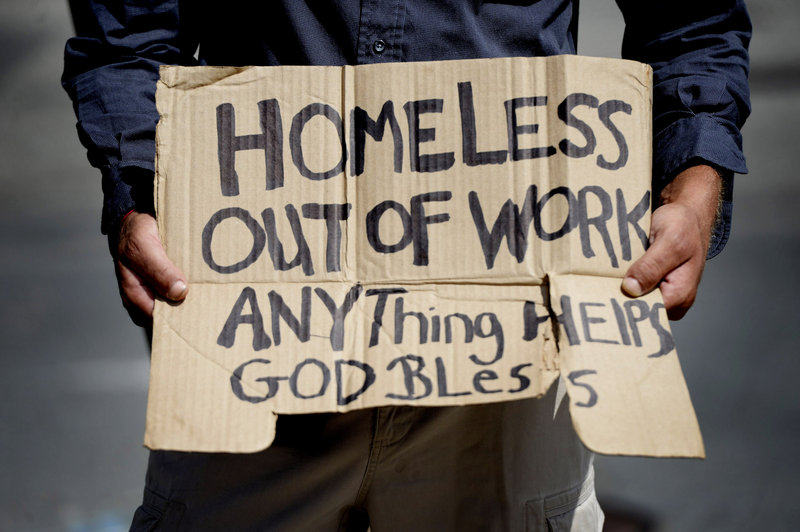When Portland passed limits on panhandling in roadways, we criticized the City Council for looking for a cosmetic fix to the problem of urban poverty.
The ban on median strip solicitation looked to us to be about getting poor people out of the public eye and not, as proponents claimed, concern for their safety.
As the ban took effect this week, however, it was good to see that city government is not forgetting its commitment to addressing the root causes of poverty, especially when it comes to reducing homelessness in Portland.
The city is making an aggressive effort to find housing for people who need it and to connect them with services that could help them right their lives. This is a long-term commitment that began with a citizen task force last year, and has continued even as demands on city services have increased.
Panhandling along the city’s busiest streets is a symptom of a complex problem that has its roots outside the city of Portland. The collapse of the economy in 2008 put millions of Americans out of work, crashed real estate values and smothered demand for goods and services. This put state tax collections into free-fall all across the country, and Maine was no exception. Budgets for health care, mental health services and substance abuse treatment were all cut — not just under the current Republican administration but starting with its Democratic predecessor.
Economists say the recession is long over, but that’s less true for people at the bottom of the economy than it is for people with stock portfolios.
All of these factors contributed to the unprecedented explosion of streetside panhandling that Portland and other cities experienced this year.
Even though the roots of this problem are not in Portland, it makes sense for the city to lead efforts to address them. Portland is a service center, and people in need come here from towns around Maine and from other states as well. The need is here, and this is the place to make a difference.
Eliminating panhandling is a superficial response to the persistent poverty, but allowing it to continue is no solution either.
City officials, along with their partners in business and the nonprofit sector, are taking an appropriately comprehensive approach. There is still much to be done.
Send questions/comments to the editors.



Success. Please wait for the page to reload. If the page does not reload within 5 seconds, please refresh the page.
Enter your email and password to access comments.
Hi, to comment on stories you must . This profile is in addition to your subscription and website login.
Already have a commenting profile? .
Invalid username/password.
Please check your email to confirm and complete your registration.
Only subscribers are eligible to post comments. Please subscribe or login first for digital access. Here’s why.
Use the form below to reset your password. When you've submitted your account email, we will send an email with a reset code.